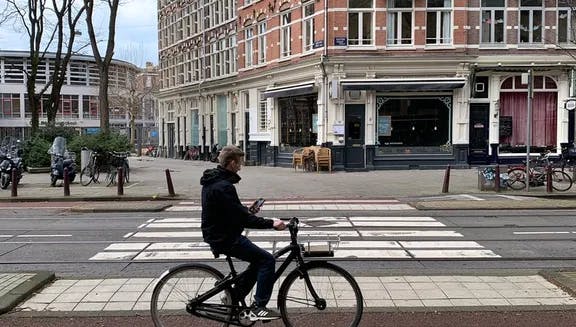
Top 5 questions internationals ask immigration lawyers
Article provided by Pellicaan Attorneys & Advisors, an IN Amsterdam partner.
1. What is the process for moving to the Netherlands with my Dutch partner?
For non-EU citizens, having your Dutch partner sponsor your stay is often the easiest and most affordable way to obtain residency in the Netherlands. You can be married, registered partners or unmarried (in a long-term, exclusive relationship) so long as you are both over 21, you intend to live together, and your partner can prove they have enough income to support you both. As with all things related to immigration, there are exceptions and exemptions, so be sure to check the implications of your specific circumstances with the IND or a legal expert.
2. Do I need to officially integrate?
That depends on where you’re from and the reason you’re moving to the Netherlands. As a general rule, if you require a provisional residence permit (mvv) to travel to and stay in the Netherlands, you may need to pass a basic civic integration exam in advance. Once you’re in the Netherlands, you then have three years to pass the Dutch civic integration (inburgering) exams. However, there are many exemptions. For example, if you’re from the EU, there’s no need to take any tests unless you want to apply for Dutch citizenship. And exemptions also apply for many temporary reasons – highly skilled migrant permits, study, orientation year permits, startup permits or various other types of residence permit – though passing civic integration is necessary for obtaining a permanent residence permit or Dutch citizenship.
3. Can I stay in the Netherlands if I lose my job?
In general, non-EU citizens who are sponsored by their company have three months after losing their job to find a new one. Bear in mind that the new job still must meet certain conditions – your new employer will need to sponsor you, and your salary will still need to meet the minimum income requirements. But there are plenty of exceptions here too: if you graduated from a Dutch university, if you own your own company, if you’re an intra-corporate transferee – all these things may affect your residency rights.
4. Can I stay in the Netherlands if my relationship has ended?
The length of your stay in the Netherlands is key here, as well as other circumstances, like the nationality of your partner and if you have children together. If you’ve had a residence permit based on your relationship for five years or more, you can switch to an independent residence permit (integration exams may still apply). If you were married to an EU citizen, this can also bring down the number of years before which you can apply for independent residency. And if your child is Dutch, you may have residency rights if the child is dependent on you as a parent. Every situation is different, so we advise you to check your specific circumstances with the IND or a legal expert.
5. If I am posted in the Netherlands, can I stay with my original employer’s pension scheme?
During a secondment, it’s possible to opt out of the Dutch pension system and stick with the pension scheme in your country of origin. But there are a couple of laws that may affect this, and conditions apply depending on the duration and accrual involved.
Still have questions? Get in contact with Pellicaan Attorneys & Advisors for trusted legal advice.
Related articles

Obtaining dual nationality in the Netherlands

A quick guide to family reunification in the Netherlands

Conditions and benefits of the highly skilled migrant permit, EU Blue Card and ICT permit

Moving to the Netherlands after Brexit

Apply for Dutch citizenship

Sworn translation or interpreter

Civic integration

5 tips for driving in and around uniquely Dutch traffic scenarios

Residence permit
